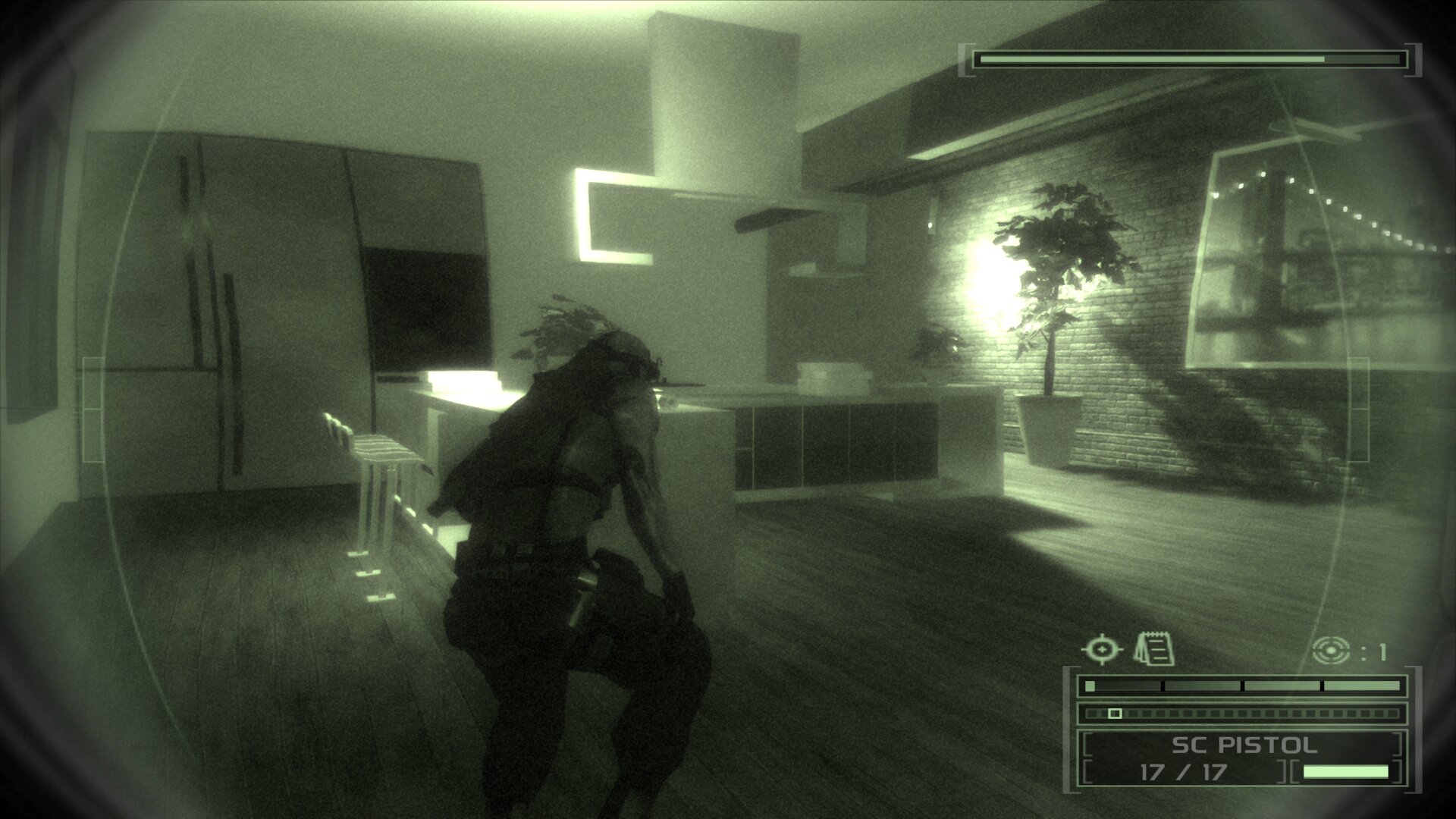Difficulty Discussion: Death & Boss Fights
Here’s the thing about modern, immersive living movie games: it's just not that fun if they also make it hard and then punish you for dying. Even some 15 odd years ago I was complaining that game designers couldn't seem to get over this precedent that all games had to have levels, and have bosses at the end of those levels.
I recall the Resident Evil games being particularly dumb about this. They made this interesting zombie horror survival world, which is at first scary and moody, where you creep around, and conserve ammo and resources. But inevitably it leads to just ridiculous boss fights in which you can unload hundreds of rounds into some giant monster until you finally cross some damage threshold and win.
You basically just run-and-gun at that point, trying not to die long enough to empty 1000 rounds into a boss. Which is just not fun, or even interesting.
Halo 2: Anniversary (PC)
On the other hand, Halo had a nice checkpoint system which allowed you to take risks and play for fun, and know that you could just come back and try again if it didn't work out. I really enjoyed playing through the story mode of Halo 1 and 2.
I saw a video recently about the development of Mario Odyssey, where they were explaining how they decided which game mechanics to include, and they eventually decided to do away with the finite number of lives mechanic. So you can basically keep trying hard feats over and over again without fear of ending your game. It struck me how brilliant this idea really was, not just because Odyssey would be awful with limited lives, but also because so many other games just can't seem to see past this idea of structuring their games in basically the same manner as past games.
Super Mario Odyssey
Don’t forget about Tenchu: Stealth Assassins—it had the most absurd adherence to that boss-at-the-end-of-a-level structure possible.
Tenchu had a killer soundtrack though.
Here is a game where you play as super-stealthy ninja, and the entire point is sneak past unnoticed and avoid direct conflict. But then, at the end of nearly every stage, you have to fight a boss anyway. Considering you can stealth kill every other opponent in the game, one would think that you could just sneak up on a boss too—which would have been awesome, by the way—but no. The bosses always get a fair fight.
To make matters worse, combat in Tenchu was always pretty sloppy and unsatisfying. This provided more incentive to be stealthy, because it was always your smartest option. But then a boss fight comes along and you are forced to contend with the clunky combat after all. I honestly think the mandatory boss fights were the single greatest flaw in Tenchu, and mostly the reason why the game isn’t remembered more fondly today. Because the rest of it was solid!
I totally hear you about Boss Battles, and am personally willing (and would be excited, even) to play games built around other sorts of design structures. But I don't think they’ll be easy to come by thanks to Joseph Campbell and the Dickensian Monomyth, all that Hero's Journey bullshit. Pretty much everyone agrees that there is something to it, and it requires a specific set of shit to occur every time, one of those shits being a big boss battle at the end.
I'm not really thrilled by it, in fact I think something about the notion is supremely boring, but I don't think there's much to be done about. My D&D professor says if you just follow the basic rules of the monomyth that your players will just kind of automatically have a better time with the story, and maybe that's actually how it goes. I'm not sure.
I mean, I do think boss battles can be done well. Again, Mario Odyssey is both super formulaic and yet also fun and challenging when it comes to this.
Kefka battle - Final Fantasy VI
For some reason I have better memories of the very similar boss construct in the old Final Fantasy games, and I'm not sure why. Although they are also quite old; maybe this would bother me today in a new game that has every opportunity to do it differently and do it better.
So this has been a big point in my recent Dungeons & Dragons education: For there to be fun, players must experience the threat of death.
It has to be possible to "lose" or to "die", or your participation won't have any meaning. Add invincible players to what had been an exciting game, and it will instantly become super boring. (I can personally attest to this from real-time strategy games. The earlier titles had great cheat codes, which were great to use when you were losing, but would totally suck all the fun out of the game under any other circumstances.)
In D&D, the threat of death is really just the threat of losing a particular character, which may well be mostly just a name you made up. Once they're dead, you can start fresh with a new character who is free to be super similar to the last one. The famous example is that you make your replacement character be the child of the one who died, naturally similar, and set on avenging their death. In the end, there's really not very much on the line, but it doesn't feel that way to the player (thanks to built-in human attachment issues).
However, I think this threat of death can be inserted in different ways.
Cyberpunk 2077, for example, does a fairly good job of it. You can't save your game if you are actively in combat – that is, someone is trying to kill you right this instant – but any other time, you can save. Even right before a boss fight, or anywhere in the middle of a massive, multi-layered mission. I've used this countless times just to try out something crazy, knowing I'll surely die, just for the fun of it. It will also autosave for you at crucial checkpoints.
Cyberpunk 2077
This style of constant saving greatly reduces my anxiety throughout the game, since I know that, in the worst possible scenario, I might have to replay maybe 5 minutes. And if you know something's going to be difficult, you can Odyssey-try it again and again without consequence.
The healing system is also pretty decent, though it does brush up against being too easy. You can't just leap into the middle of an army and have any hope of surviving, but you could wage a gradual war of attrition, running in, and then running away, again and again, and eventually do it that way. Or you could sneak around and try to stealth-kill every single one of them as part of a gigantic ninja-puzzle. I think that's great.
Halo was a bit further over on this spectrum, going in the opposite direction from reality. In that game, I actually would try leaping in the middle of moderate-to-large sized enemy forces just to see if I had what it took to kill them all myself before dying.
Other takes on death in games:
In Magic, the Planeswalker cards very specifically rely on "loyalty" counters and not "health points”. Because when they "die," they actually just decide to bail on you, thematically speaking.
And in Gloomhaven (the king of nerdy board games), your character can only ever become "exhausted" during missions. Physical death is actually impossible. So impossible, in fact, that to get rid of characters they are "retired," and just leave the mercenary business so you can never play as them again.
Hey, don't forget “swooning” in Final Fantasy.
The save-anytime option can backfire though, especially in stealth games. The example that comes to mind is Tom Clancy’s Splinter Cell: Chaos Theory, aka the best Splinter Cell.
Chaos Theory really is the best Splinter Cell.
I found myself compulsively saving after each enemy that I’d take out. Because the goal is to take them out/bypass them stealthily, it is very tempting to stop and load your last save if you happen to screw something up and you’d end up resorting to non-stealthy kills or just running away.
The problem is that the craziness and pressure of those situations is supposed to be part of the game, and the freedom to save whenever and wherever kind of chops out that whole aspect of the game. Plus it brings less realism to the experience, which for the Tom Clancy games was important, up until recently at least.
Assassin's Creed: Valhalla did actually do something interesting with the concept of death, but only once…
Assassin's Creed Valhalla
There was this one time playing Valhalla when I died, and instead of reloading the last saved point, my character awoke in an infirmary bed. There was this NPC who explained how he had revived me, and the game went on from there. That was a cool and creative way to move on from a death (or at least a mission fail), so as to still incorporate it into the story, but move forward anyway.
Strangely that only occurred at this one particular location in the game, and for all others you got to reload the last save when you died as usual, so I'm not sure why they didn't use that more than they did. I suppose players would just go back into the menu and reload it themselves anyway (actually what I did too), which is more of a hassle than when it's just automatic, I guess.
But in most games like this, when your character dies, there is some sort of penalty to the player for having failed. Nobody wants to just be finished playing the game at that point, of course, so it has to be different from real-life death. The classic model is to make you start over, and the most classic kind of start over is from the beginning (usually of a level). But, depending on the game, this can be a really severe penalty.
Basilica Di San Marco tomb - Assassin's Creed 2
This segues nicely into my least favorite part of the Assassin's Creed franchise. I should note that they have learned from earlier mistakes, and the more recent games do not do this anymore. It used to be that somewhere in the course of each game, among a variety of mission types you were required to complete as part of the main story, there would come a test of your physical dexterity. You had to do all these acrobatic stunts to get your character to the end of the level, timing jumps perfectly, keying in combos correctly, that sort of thing, which constituted the game's furthest exploration of its (admittedly) impressive control interface. But I had a big problem with it: It was just plain hard.
And it was hard in a way that the whole entire rest of the game wasn't. You could be bad at climbing, sloppy at running, an awful shot with ranged weapons, and miss a lot of jumps during the course of the rest of the game and still get by fine. But here in this challenge, you absolutely could not be, or you would fall to your death and have to start the whole thing over.
This meant that even if you were competent at everything except for that one last move way at the end, you would be punished by having to repeat all the stuff that wasn't challenging for you – just to get to the part where you could finally make another attempt at the hard thing again.
Oh yeah, and sometimes there was a time limit, so you can imagine how much more that sucked. It was excruciating – the exact kind of thing which inspired this cartoon:
















